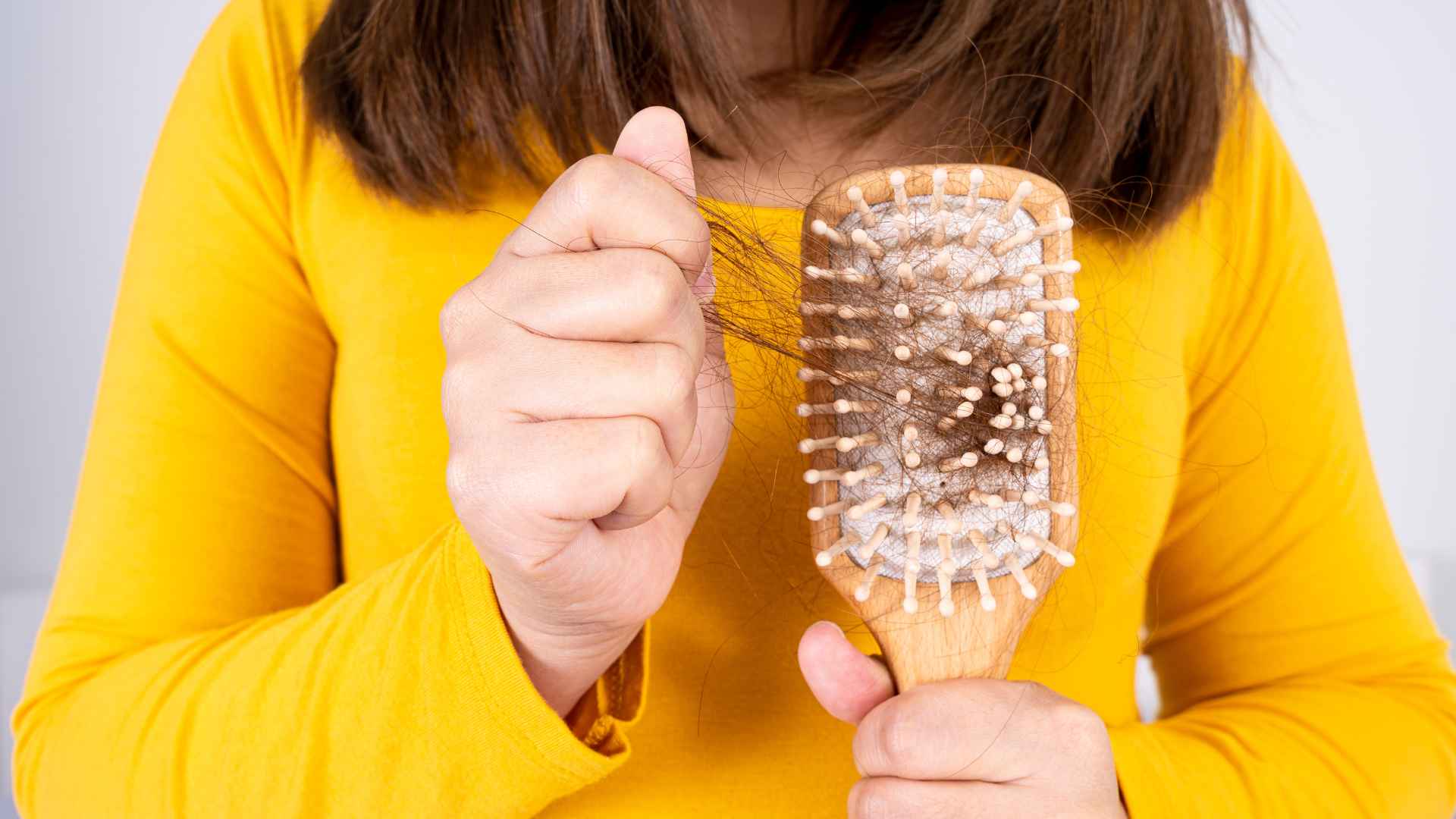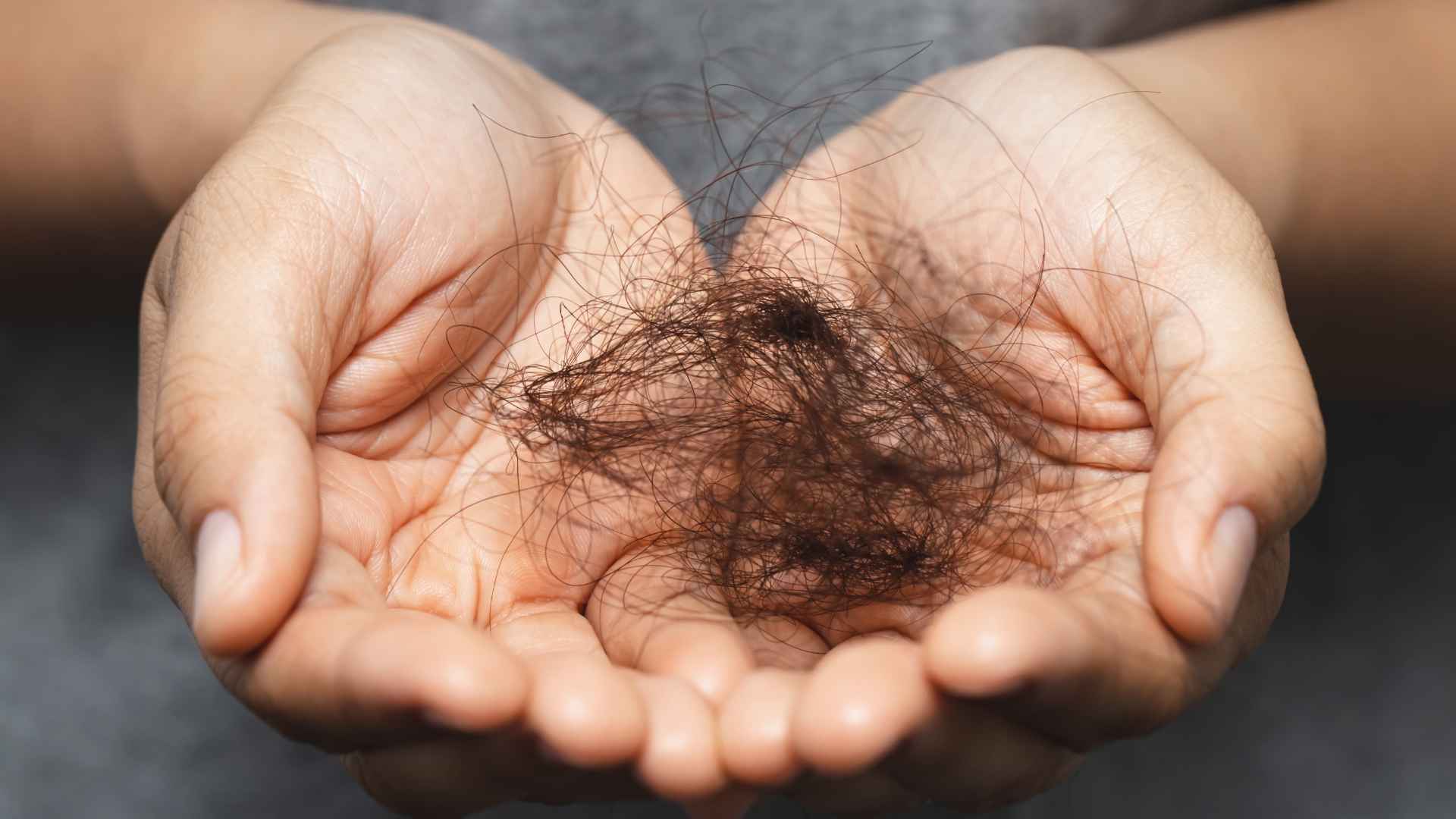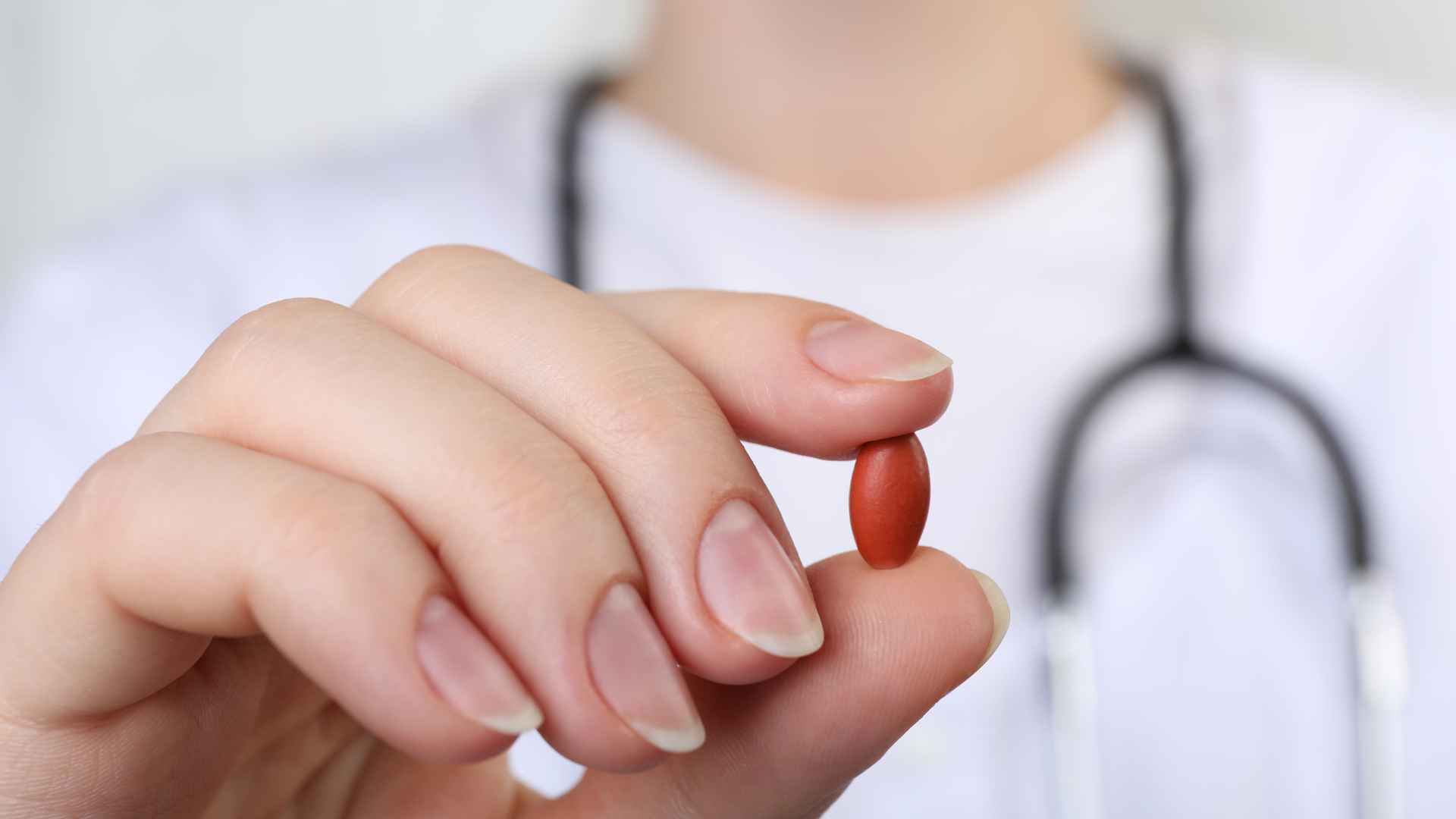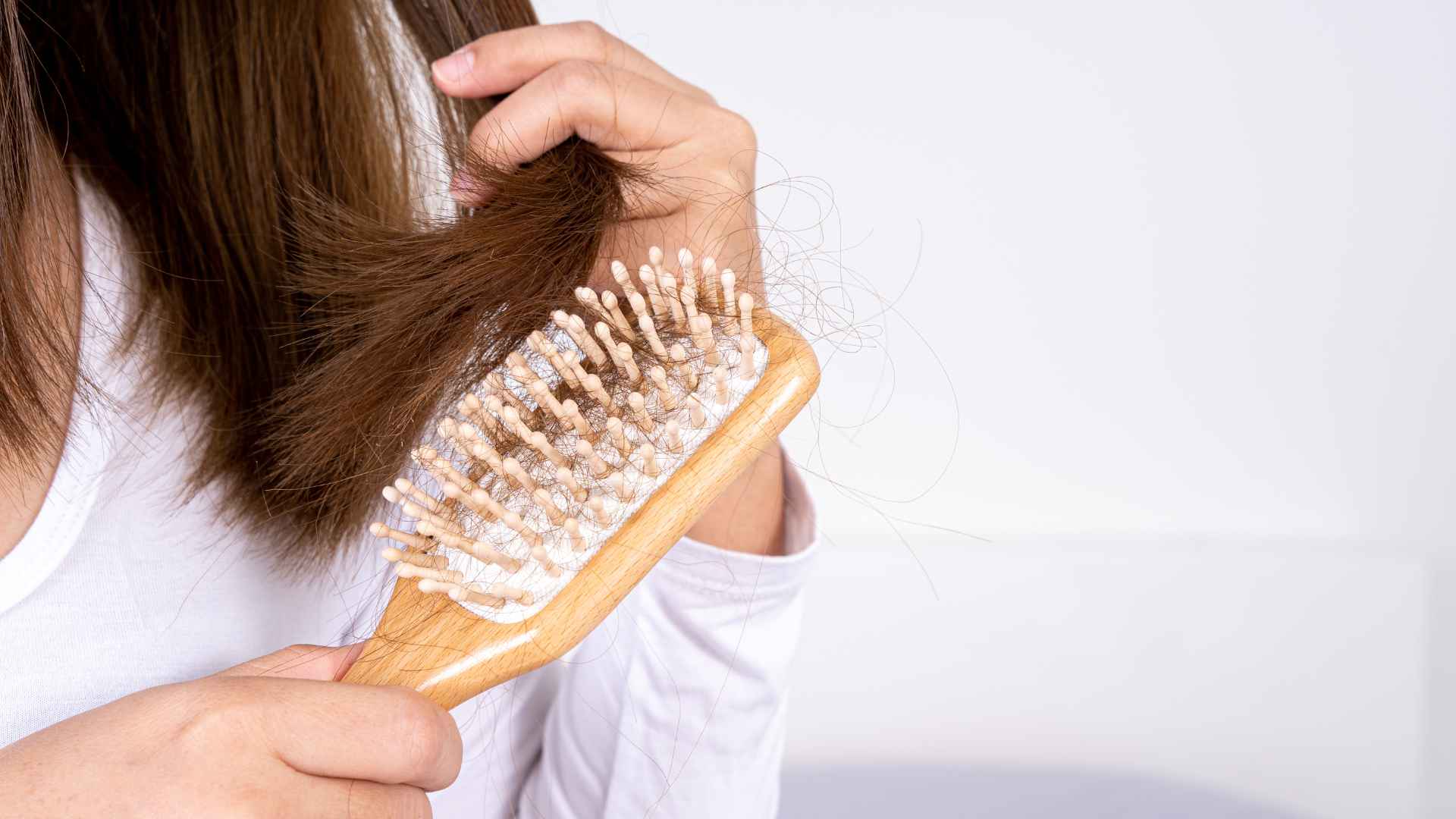Many individuals are concerned about the potential link between low iron levels and hair loss. Hair loss can be distressing, affecting not only our physical appearance but also our self-esteem and overall well-being. In this article, we aim to address this concern by exploring the relationship between iron levels and hair health.
Iron plays a crucial role in various bodily functions, including the health of our hair. It is an essential mineral needed for the production of hemoglobin, a protein responsible for carrying oxygen to our body’s cells, including the hair follicles. When iron levels are insufficient, the delivery of oxygen and nutrients to the hair follicles may be compromised, potentially leading to hair loss.
Understanding the connection between iron levels and hair health is important for those experiencing hair loss or concerned about maintaining healthy hair. Our purpose in this article is to provide clarity and information on this topic. We will explore the role of iron in hair health, the potential impact of low iron levels on hair loss, and strategies to address iron deficiency and promote hair growth.
If you are worried about the relationship between low iron levels and hair loss, we encourage you to read on. It is essential to have a comprehensive understanding of the factors that influence hair health and the steps you can take to promote healthy hair growth. Remember, knowledge is empowering, and with the right information, you can make informed choices to support your hair health.
Significance of Iron in Maintaining Healthy Hair.

Iron is a vital mineral for maintaining healthy hair. It plays a significant role in the production of hemoglobin, a protein found in red blood cells that carries oxygen from the lungs to all parts of the body, including the hair follicles. When iron levels are insufficient, it can disrupt the hair growth cycle and lead to hair loss.
Hair follicles require an adequate supply of oxygen and nutrients to support their growth and development. The oxygen delivered by hemoglobin is crucial for cellular metabolism and the production of energy necessary for hair follicle function. Iron also aids in the synthesis of DNA, collagen, and other structural proteins that contribute to healthy hair growth.
Insufficient iron levels can disrupt the normal hair growth cycle. This disruption primarily occurs during the anagen phase, which is the active growth phase of the hair follicles. Without sufficient iron, hair follicles may enter the resting phase (telogen) prematurely, leading to increased shedding and thinning of the hair. In some cases, iron deficiency can also cause the hair shaft to become weak and brittle.
It’s important to note that while iron deficiency can contribute to hair loss, it is not the sole cause. Hair loss can result from a combination of factors, including genetics, hormonal imbalances, medical conditions, and lifestyle factors. However, ensuring adequate iron levels is an essential component of supporting overall hair health and minimizing the risk of iron-related hair loss.
If you suspect that low iron levels may be contributing to your hair loss or are concerned about your iron status, it is advisable to consult with a healthcare professional. They can assess your iron levels through blood tests and provide guidance on the appropriate steps to address any deficiencies. By addressing iron deficiency, you can support the health of your hair and promote optimal hair growth.
What is Iron Deficiency?
Iron deficiency is a condition characterized by insufficient iron levels in the body. It can occur due to various factors, including inadequate dietary intake, poor absorption of iron, and increased iron requirements.
One of the primary causes of iron deficiency is an inadequate dietary intake of iron-rich foods. Iron is found in two forms: heme iron, which is derived from animal sources such as meat and seafood, and non-heme iron, which is present in plant-based foods like legumes, leafy greens, and fortified cereals. Vegetarian or vegan diets that exclude or limit animal-derived foods can put individuals at higher risk for iron deficiency if they don’t carefully plan their diet to include alternative iron sources.
Poor iron absorption can also lead to deficiency. Certain conditions, such as celiac disease, inflammatory bowel disease, or gastrointestinal surgeries, can impair the absorption of iron from the diet, even if it is consumed in sufficient amounts.
Increased iron needs can occur during certain life stages or conditions. For instance, women with heavy menstrual periods may experience increased iron loss, making them more prone to deficiency. Pregnancy also increases the demand for iron to support fetal development and maternal blood volume expansion. Without adequate iron intake, pregnant women can develop iron deficiency anemia.
Other risk factors for iron deficiency include certain medical conditions like chronic kidney disease or gastrointestinal bleeding, which can lead to chronic iron loss. Additionally, infants and young children with rapid growth rates and inadequate iron intake from complementary foods may be at risk of iron deficiency.
Identifying the underlying cause of iron deficiency is essential for appropriate management and prevention of hair loss and other health complications. If you suspect iron deficiency, it is advisable to consult with a healthcare professional who can evaluate your iron status through blood tests and provide recommendations for addressing any deficiencies. They can also help identify any specific risk factors or medical conditions that may contribute to iron deficiency and offer personalized guidance to improve your iron levels.
The Link Between Low Iron and Hair Loss:

Low iron levels can contribute to hair loss by disrupting the normal hair growth cycle. One of the common conditions associated with low iron levels and hair loss is called telogen effluvium.
Telogen effluvium occurs when there is a disturbance in the hair growth cycle, specifically during the telogen phase, which is the resting phase of the hair follicles. Inadequate iron levels can trigger this condition, leading to excessive shedding of hair from the scalp.
When iron levels are low, the supply of oxygen and nutrients to the hair follicles is compromised. This can weaken the hair follicles and disrupt their normal growth and regeneration process. As a result, a larger number of hair follicles enter the telogen phase prematurely. After a few months, these follicles shed their hairs, leading to noticeable hair loss.
Hair loss due to low iron levels is often diffuse, meaning it affects the entire scalp rather than causing specific patches of baldness. It can result in overall thinning of the hair, making the scalp appear less dense.
It’s important to note that low iron levels are not the only cause of hair loss, and other factors, such as genetics, hormonal imbalances, and medical conditions, can contribute to hair loss as well. However, addressing low iron levels is crucial in supporting overall hair health and minimizing the risk of iron-related hair loss.
If you suspect that low iron levels may be contributing to your hair loss, it is recommended to consult with a healthcare professional. They can assess your iron levels through blood tests and determine the appropriate steps to address any deficiencies. By treating the underlying iron deficiency, you can help restore the normal hair growth cycle and promote healthy hair regrowth.
Additional Signs and Symptoms of Iron Deficiency,

In addition to hair loss, iron deficiency can present with various signs and symptoms throughout the body. Here are some additional common symptoms of iron deficiency:
- Fatigue and Weakness: Feeling persistently tired or having low energy levels is a common symptom of iron deficiency. It can impact your daily activities and overall quality of life.
- Pale Skin: Iron deficiency can lead to decreased hemoglobin levels, which can result in pale or noticeably lighter skin complexion. The reduced oxygen-carrying capacity of the blood can affect the skin’s coloration.
- Brittle Nails: Iron deficiency may cause changes in the appearance and texture of the nails. Nails can become brittle, fragile, and more prone to breakage or splitting. They may appear pale or have noticeable ridges.
- Cold Hands and Feet: Insufficient iron levels can affect circulation, leading to poor blood flow to the extremities. This can result in a sensation of coldness or numbness in the hands and feet.
- Shortness of Breath: In severe cases of iron deficiency, reduced oxygen-carrying capacity can lead to difficulty in breathing or shortness of breath, particularly during physical exertion or exercise.
It’s important to note that these symptoms may vary among individuals, and some individuals may not experience all of them. Additionally, these symptoms can be caused by various other factors, so it is crucial to consult with a healthcare professional for proper evaluation and diagnosis.
If you are experiencing hair loss along with other symptoms associated with iron deficiency, it is recommended to seek medical attention for further evaluation and management. A healthcare professional can assess your iron levels through blood tests and determine the appropriate course of action, such as iron supplementation or dietary modifications, to address any deficiencies and improve your overall health.
Importance of Consulting with Healthcare Professionals for Iron Deficiency
Consulting with healthcare professionals is crucial for the proper diagnosis and treatment of iron deficiency. Doctors, particularly those specializing in internal medicine, family medicine, or hematology, and registered dietitians can provide valuable guidance and expertise in managing iron deficiency.
To diagnose iron deficiency, blood tests are commonly conducted, with a focus on measuring ferritin levels. Ferritin is a protein that stores iron in the body. Low ferritin levels indicate inadequate iron stores and can be an indicator of iron deficiency. Other blood markers, such as hemoglobin and serum iron, may also be measured to assess iron status.
Based on the diagnosis, healthcare professionals can recommend appropriate treatment options. Here are some potential approaches:
- Iron Supplementation: Iron supplements may be prescribed to replenish iron stores. These supplements are available in various forms, including ferrous sulfate, ferrous gluconate, and ferrous fumarate. It’s important to follow the recommended dosage and duration as advised by your healthcare professional.
- Dietary Changes: Increasing dietary iron intake is crucial for managing iron deficiency. Foods rich in iron include lean meats, poultry, seafood, legumes, fortified cereals, dark leafy greens, and dried fruits. Your healthcare professional or registered dietitian can provide specific dietary recommendations based on your needs.
- Addressing Underlying Causes: It’s essential to identify and address any underlying causes contributing to iron deficiency. This may involve further evaluation and management of conditions that affect iron absorption or utilization, such as celiac disease, gastrointestinal disorders, or excessive blood loss.
Regular monitoring of iron levels through follow-up blood tests is necessary to evaluate the effectiveness of treatment and ensure that iron levels are returning to normal. It’s important to work closely with your healthcare professional to determine the most appropriate treatment plan for your specific circumstances.
Remember, self-diagnosis and self-treatment are not recommended. It’s always best to seek professional guidance and support to ensure an accurate diagnosis and personalized treatment approach for iron deficiency. By doing so, you can effectively address iron deficiency, support hair health, and improve your overall well-being.
6 Tips for Preventing Iron Deficiency and Maintaining Optimal Iron Levels
Preventing iron deficiency and maintaining optimal iron levels is crucial for overall health, including hair health. Here are some tips to help you prevent iron deficiency:
- Eat Iron-Rich Foods: Include iron-rich foods in your diet to ensure an adequate intake of this essential mineral. Good sources of iron include lean meats (such as beef, poultry, and seafood), organ meats, legumes (such as lentils, beans, and chickpeas), tofu, spinach, kale, broccoli, fortified cereals, and dried fruits like raisins and apricots.
- Pair Iron-Rich Foods with Vitamin C: Vitamin C can enhance iron absorption from plant-based sources. Pair iron-rich foods with vitamin C sources like citrus fruits (oranges, grapefruits), strawberries, kiwi, bell peppers, and tomatoes. Consider having a glass of orange juice with your iron-rich meal or adding lemon juice to your leafy green salad.
- Avoid Tea and Coffee with Meals: Substances like tannins present in tea and coffee can inhibit iron absorption. It’s best to avoid consuming these beverages during meals or immediately after iron-rich meals. Instead, opt for drinking them between meals.
- Cook in Cast Iron Cookware: Cooking acidic foods (like tomato-based dishes) in cast iron cookware can increase the iron content of the food. The iron from the cookware can leach into the food, providing a slight boost in iron intake.
- Seek Regular Monitoring: Regularly monitor your iron levels through blood tests, especially if you have a history of iron deficiency or are at higher risk. Your healthcare professional can help determine the appropriate frequency for testing based on your specific needs.
- Consider Supplementation if Recommended: If dietary measures alone are not sufficient to address iron deficiency, your healthcare professional may recommend iron supplements. It’s important to follow their guidance regarding dosage and duration, as excessive iron intake can have adverse effects.
Remember, personalized recommendations may vary based on factors such as age, gender, overall health, and specific medical conditions. It’s important to consult with a healthcare professional or registered dietitian for personalized advice and guidance tailored to your unique circumstances.
By incorporating iron-rich foods into your diet, pairing them with vitamin C sources, and monitoring your iron levels regularly, you can help prevent iron deficiency and maintain optimal iron levels. Taking proactive steps towards iron sufficiency contributes to overall health, including the health of your hair.
Watch Low iron and vitamin deficiency are linked to hair loss | Video
Top 5 FAQs and answers related to Does iron deficiency cause hair loss
Can low iron cause hair loss?
Yes, low iron levels can contribute to hair loss. Iron is essential for the normal functioning of hair follicles, and inadequate iron levels can disrupt the hair growth cycle, leading to excessive shedding and hair loss.
How does low iron lead to hair loss?
Low iron levels can affect the delivery of oxygen and nutrients to the hair follicles, which are crucial for their growth and development. Insufficient iron can weaken the hair follicles, disrupt their normal growth cycle, and result in hair loss.
Will treating low iron levels help with hair regrowth?
Treating low iron levels can be beneficial for hair regrowth in cases where iron deficiency is contributing to hair loss. By replenishing iron stores through proper supplementation or dietary changes, you can support the normal hair growth cycle and promote healthy regrowth.
How long does it take for hair to regrow after treating low iron levels?
Hair regrowth timelines can vary among individuals, but typically, after addressing low iron levels, hair regrowth can be expected within a few months to a year. Patience is key, as the regrowth process takes time and may vary based on factors such as individual response and overall health.
Are there other factors besides low iron that can cause hair loss?
Yes, hair loss can be caused by various factors, including genetics, hormonal imbalances, medical conditions, certain medications, and lifestyle factors. It’s important to consider a comprehensive evaluation by healthcare professionals to identify the specific cause of hair loss and determine appropriate management strategies.
Conclusion:

In conclusion, it is important to understand the connection between low iron levels and hair loss. Here are the key points discussed in this article:
- Low iron levels can contribute to hair loss by disrupting the normal hair growth cycle and weakening the hair follicles.
- Hair loss due to low iron levels is often diffuse and affects the entire scalp rather than causing specific bald patches.
- Identifying and addressing low iron levels is crucial for supporting overall hair health and promoting healthy hair regrowth.
- Consulting with healthcare professionals, such as doctors or registered dietitians, is important for proper evaluation and management of iron deficiency-related hair loss.
- Diagnosis of iron deficiency involves blood tests, particularly measuring ferritin levels, to assess iron stores in the body.
- Treatment options may include iron supplementation, dietary changes, and addressing any underlying causes contributing to iron deficiency.
It is highly recommended to seek guidance from healthcare professionals for personalized evaluation and management. They can provide tailored recommendations based on your specific circumstances, assess your iron levels, and help you take appropriate steps to address any deficiencies and promote hair health.
Remember, addressing low iron levels is just one aspect of overall hair health. Other factors, such as genetics, hormonal imbalances, and lifestyle choices, can also contribute to hair loss. Therefore, a comprehensive approach involving healthcare professionals can provide the most effective solutions.
By taking proactive steps to identify and address low iron levels, you can support healthy hair growth and improve your overall well-being.
Please share this Does Creatine Cause Hair Loss? Debunking the Myths Guide with your friends and do a comment below about your feedback.
We will meet you on next article.
Until you can read, Can Dandruff Lead to Hair Loss? Debunking the Myth Guide